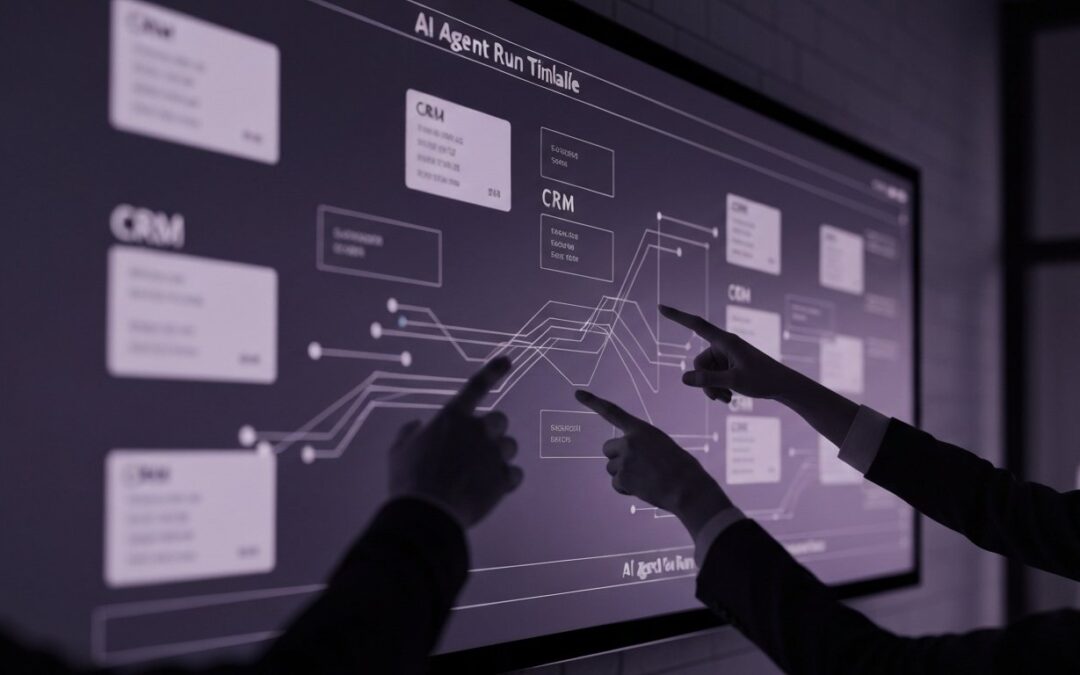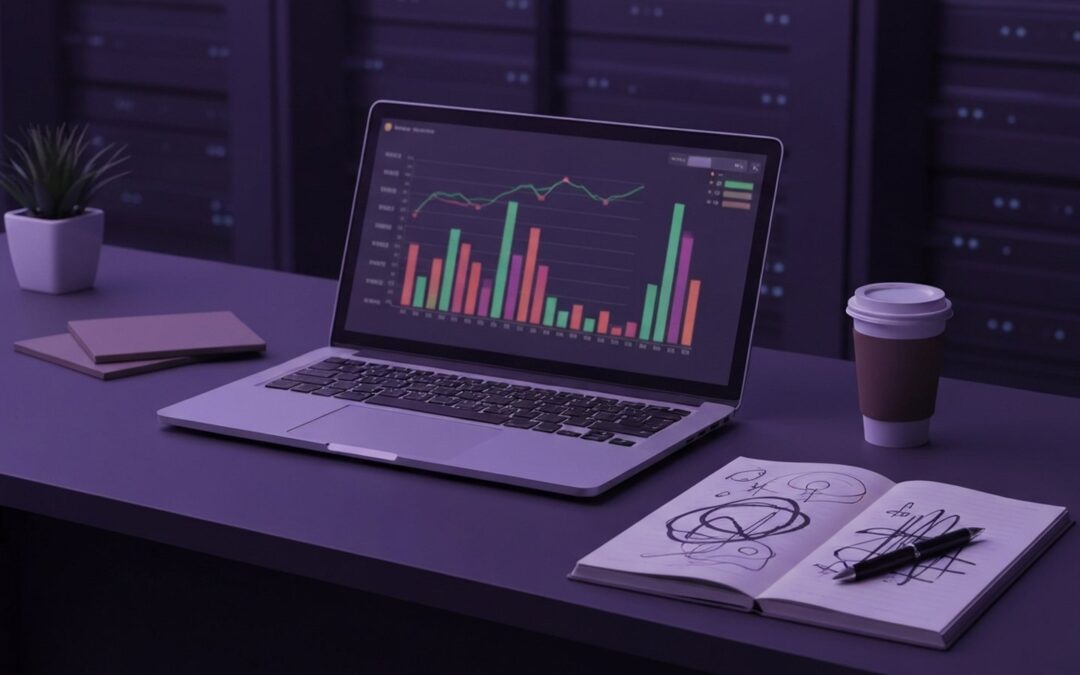In today’s fast-paced business world, HR professionals are often left juggling daily queries that demand quick yet accurate responses. Imagine a world where answering these inquiries is no longer a time-consuming chore. Instead, intelligent AI agents handle HR policy queries with ease, delivering precise answers almost instantly. You might think this sounds too good to be true, but the breakthrough nature of AI-driven solutions has already begun to transform HR departments. As Michael Scott might quip, “That’s what she said,” if only HR processes were smart enough to crack these jokes on the spot!
The Evolution of HR Support
The HR department is the backbone of any organization, facing the constant challenge of staying updated with policy changes and answering a myriad of employee concerns. Traditional methods often lag due to manual updates, delayed responses, and inconsistencies in interpreting policies. The introduction of AI agents represents a quantum leap forward in how HR processes can be managed.
Generative AI models harness vast data sources to instantly retrieve and provide accurate answers. They not only reduce wait times but also ensure that each response is consistent with the latest guidelines. For larger companies and even startups, integrating AI agents into HR operations means fewer errors, enhanced compliance adherence, and, most importantly, happier employees. These AI agents are designed to learn continuously, meaning that as policies evolve, the system remains up-to-date and ready to serve. Business leaders now relish the idea of automating mundane tasks so that HR professionals can focus on strategic initiatives, turning what was once an administrative headache into a strategic advantage.
How AI Agents Streamline HR Policy Queries
AI agents come with a host of features that make them indispensable in modern HR operations. Their quick responses, combined with consistent and accurate guidance, help address employee queries within seconds. Let’s dive deep into the specifics of how these agents function and what benefits they bring to the table.
Rapid Response Times
Unlike traditional help desks that might take hours or even days to reply, AI agents work on algorithms that can scan vast databases and retrieve relevant HR policies in milliseconds. This near-instant response can be a lifesaver during periods of high query volumes. For instance, during benefits enrollment or compliance audits, time is of the essence. Employees expect quick answers, and AI does not disappoint.
Moreover, the ability to handle multiple queries simultaneously means that HR departments can manage peak loads without burning out their staff. By automating routine questions, AI agents free up human team members for more complex tasks that require empathy, nuance, and the human touch. In a fast-moving environment where every minute counts, AI agents provide a breakthrough solution.
Accuracy and Consistency
There’s never a dull moment in HR departments when policies are constantly updated. AI agents are built to constantly learn and grow with each interaction. They access centralized databases that are updated regularly with new policy information ensuring that every answer is as current as the last company handbook revision. When policy details change, an AI agent quickly adapts, ensuring consistency across the board. Consider a scenario where different departments follow slightly different guidelines—this system can level the playing field by offering a single source of truth.
In the world of HR, ambiguity can lead to miscommunication and, ultimately, workplace disputes. AI agents mitigate these risks by offering uniform responses every time, based on the latest policy guidelines. This level-headed approach not only builds trust among employees but also improves regulatory compliance. According to a recent study by the Society for Human Resource Management (SHRM), organizations that integrated AI solutions in HR processes saw a 25% increase in employee satisfaction, largely due to reduced response time and error-free information management.
Personalized Interaction with Data-Driven Insights
How can AI provide a personal touch in HR policy support? The secret lies in advanced natural language processing that mimics human conversation. While AI agents offer quick, fact-based responses, they can also be integrated with sentiment analysis tools. This integration ensures that the tone of the response is friendly, empathetic, and respectful. Many employees appreciate concise, human-like interactions that acknowledge their concerns while delivering accurate information.
For example, when an employee queries about leave policies, the system not only provides detailed instructions but also links to additional HR documents and credible sources that give further clarity. This blend of personalized service with reliable data creates a virtual HR assistant that understands the value of human connection even in the age of automation.
The Underlying Technology: A Simplified Overview
Data Integration and Real-Time Updates
At its core, the system integrates data from multiple sources: company policy databases, government regulations, and even historical logs of HR interactions. This integration is maintained via secure API connections that ensure data is always up-to-date. When policy updates are rolled out, the AI agent learns the new language and context, then immediately applies it across all interactions.
Every time an employee submits a query, the AI agent cross-references the requested information with the central repository. The system’s architecture is designed to minimize latency, ensuring that there is no noticeable delay in the query-response process. These systems are also built to handle high concurrency, meaning that hundreds of queries can be processed simultaneously without sacrificing performance or accuracy.
Natural Language Processing and Machine Learning
Natural language processing (NLP) forms the heart of these AI agents. By parsing sentences and identifying key phrases, NLP ensures that the AI understands the query’s intent. Machine learning then fine-tunes the responses based on historical interactions, ensuring that every subsequent answer is better than the previous one.
Innovative AI agents are also capable of handling follow-up questions. An employee might ask a clarifying question about eligibility for a certain benefit, and the AI can seamlessly reference the previous context to provide an accurate answer. This layered understanding turns the interaction into a coherent conversation rather than a one-off query-and-response exchange. As one HR director put it, “It’s like having a seasoned HR expert available 24/7—only without the coffee breaks.”
Additionally, sentiment analysis helps these systems gauge the urgency or emotional tone of the queries. If an employee seems particularly stressed or frustrated, the AI can escalate the matter to a human representative. This ensures a careful balance between automated efficiency and human empathy.
Benefits and Key Advantages of Using AI in HR
- Instantaneous Response: The traditional delay associated with human responses is virtually eliminated.
- Increased Accuracy: AI agents provide reliable, up-to-date, and consistent information, reducing the potential for human error.
- Enhanced Efficiency: HR professionals can redirect their focus from routine queries to strategic tasks after automation takes over repetitive functions.
- Scalability: AI systems can easily accommodate increased query volumes during peak HR cycles.
- Cost Savings: By automating repetitive tasks, organizations can save on labor costs and minimize potential compliance fines due to misinformation.
- 24/7 Availability: Employees can access policy information at any time, promoting a culture of transparency and empowerment.
A Closer Look: Traditional Methods vs AI Agents
| Feature | Traditional HR Methods | AI-Driven HR Agents |
|---|---|---|
| Response Time | Hours to days | Instant (milliseconds to seconds) |
| Accuracy and Consistency | Prone to human error and misinterpretation | Data-driven, up-to-date, and uniform |
| Scalability | Limited by human resource availability | Virtually unlimited, handles high query loads |
| 24/7 Availability | Limited to business hours | Always available |
| Cost Efficiency | Higher operational costs | Lower overhead costs |
| Personalization | Relies on personal memory and knowledge | Tailored responses using NLP and machine learning |
| Adaptability to Policy Changes | Slow to update | Near-instant updates with data integration |
This clear-cut comparison spells out the crucial advantages of implementing AI. Even HR professionals who are wary of over-reliance on technology may find these metrics too appealing to ignore. Imagine replacing the weeks of tedious research with an instantaneous lookup process—it is a transformative change not just for HR departments but for whole organizations striving for optimal performance.
Overcoming Common Challenges When Implementing AI Agents
Data Security and Privacy
One of the foremost concerns with using AI in HR settings is security. HR data is sensitive, and any breach could seriously damage employee trust. Thus, robust encryption methods and secure API integrations are a must. Companies must ensure that the system complies with regulations such as GDPR and HIPAA. When data is transmitted, confidentiality remains a non-negotiable priority. For extra reassurance, organizations are advised to regularly conduct security audits and penetration tests. Paying attention to these areas ensures that the transition to AI-enhanced HR support is smooth and secure.
User Adoption and Change Management
Adapting to new technology can be tricky. Resistance from HR staff may occur if they feel their roles are threatened. However, the reality is that AI agents are not a replacement for human employees; they offer valuable support that allows HR professionals to concentrate on more strategic tasks. Companies can ease the transition by holding training sessions, workshops, and open forums where staff can voice concerns and suggestions. Early adopters have noted that once the initial learning curve is overcome, the adoption rate is surprisingly high. Trust builds over time as employees see the efficiency improvements and the reducing error rates that directly enhance their day-to-day work.
Integration with Existing Systems
No enterprise operates in isolation. For AI agents to be effective, they must integrate seamlessly with existing HR systems like intranets, employee management software, and email platforms. This integration often requires collaboration between IT departments and HR teams. A structured change management process that includes pilot testing and phased rollouts can help ensure that these new systems are well-received and thoroughly tested before full-scale implementation. Additionally, linking the AI agent with familiar platforms can help boost confidence among users. This way, the technology becomes less of an alien force and more of an integrated part of the workplace.
Practical Tips for a Seamless Transition
- Start Small: Begin with a pilot project to handle a subset of common HR queries.
- Train Your Team: Offer comprehensive training sessions covering the AI interface.
- Monitor & Iterate: Use feedback loops to continuously improve the system.
- Secure Your Data: Employ robust cybersecurity measures to ensure confidentiality.
- Celebrate Wins: Acknowledge improvements and successes along the way, reinforcing confidence in the system.
Implementing these strategies not only helps ease the transition but also ensures that the AI agent is positioned as a reliable assistant rather than a disruptive technology.
Real-World Examples and Success Stories
Organizations across various sectors have embraced AI-powered HR policy solutions, experiencing impressive results. One multinational corporation reported a 40% reduction in response time for HR queries. Their HR team, once overwhelmed with emails and requests, now enjoys a more strategic role, tackling complex issues that require creative problem solving. Another company noted that AI integration led to improved employee satisfaction scores and fewer errors in policy communication.
A senior HR manager from a tech start-up stated, “The AI agent has become a trusted partner in our day-to-day operations. It handles the repetitive work while we focus on innovation and employee engagement.” Such testimonials underscore that AI agents do not replace human workers; rather, they augment human capabilities by providing rapid, consistent, and accurate policy-related responses.
Enhancing the Overall HR Experience
Integrating AI into HR not only optimizes routine query responses but also enhances the overall employee experience. With instant access to up-to-date policy details, employees experience fewer frustrations and misunderstandings. This transparency breeds trust. When employees know they have reliable, on-demand access to crucial policy information, they can perform their duties with greater confidence.
Moreover, the opportunity for employees to receive immediate feedback on policy queries has a cascading positive effect. It reduces the administrative bottlenecks that often plague HR departments and shifts focus to more meaningful interactions. At the same time, HR professionals are empowered with data-driven insights from each interaction, enabling them to identify trends, improve policy clarity, and anticipate potential issues before they escalate.
Future Trends: Where AI and HR Intersect
Looking ahead, the potential for AI in HR is immense. Future developments may include multi-channel support through integrated communication tools like chatbots on mobile devices or social media platforms. One emerging trend is the use of predictive analytics to foresee future HR challenges. By analyzing query patterns and employee behavior over time, AI agents might become a crucial part of proactive HR management.
Some forward-thinking HR leaders believe that future AI tools could even assist in policy creation and revision. With vast data and continuous learning capabilities, the idea of AI drafting initial versions of HR policies is no longer science fiction but an eventual reality. Thus, the ongoing advancement of AI is set to revolutionize HR, pushing the boundaries of what is possible in employee communication and workplace productivity.
Tips for Maximizing the Benefits of AI Agents in HR
- Regularly update data sources to reflect the most recent policy changes.
- Provide clear communication channels for employees to escalate more complex issues.
- Invest in robust training programs for both the AI system and HR staff.
- Monitor performance metrics diligently to identify areas for continuous improvement.
These practices, coupled with steady monitoring and iterative development, help ensure that the AI solution evolves alongside your organization. After all, sustained success in HR relies on keeping pace with the dynamic nature of both technology and employee needs.
A Call to Embrace the Future Today
The integration of AI agents to handle HR policy queries is an opportunity that organizations cannot afford to ignore. It is the ultimate blend of technology and human ingenuity. These systems not only address the need for speedy responses but also deliver a level of consistency that traditional methods simply cannot match. AI adoption in HR is not just an upgrade—it is a revolution that brings with it enhanced efficiency, cost savings, and a modern work environment that values both speed and accuracy.
For organizations committed to staying ahead in an ever-competitive landscape, switching to AI-powered HR support is not just optional. It is essential. With minimal downtime and maximum impact, AI agents are here to change the way we think about policy management. Whether you’re a small start-up or a multinational conglomerate, the adoption of AI in HR will free up valuable time and resources. Businesses now have the luxury to concentrate on strategic initiatives that genuinely drive growth.
As one noted HR leader once said, “Embrace innovation or be left behind.” Today, implementing AI for HR policy queries is not merely an option; it’s a strategic imperative. Understanding this pivotal shift can help organizations thrive in a competitive marketplace where every second counts, and every query deserves an instantaneous answer.
Concluding Thoughts on the AI-Driven HR Revolution
With AI agents revolutionizing HR policy management, companies are witnessing an unprecedented level of efficiency and employee satisfaction. The transformation from traditional HR query handling to an AI-enhanced system may seem daunting, but its benefits speak volumes. With rapid response times, unmatched accuracy, and scalable operations, AI agents are not just a temporary trend; they are the future.
Enough with the long-winded debates, and let’s get down to brass tacks. As HR departments gear up for the next decade, integrating AI isn’t just a beneficial move; it’s the way forward. Whether you’re a small start-up or a multinational conglomerate, the adoption of AI in HR will free up valuable time and resources. Businesses can now concentrate on strategic initiatives that genuinely drive growth.
Understanding this pivotal shift can help organizations thrive in a competitive marketplace where every second counts.






